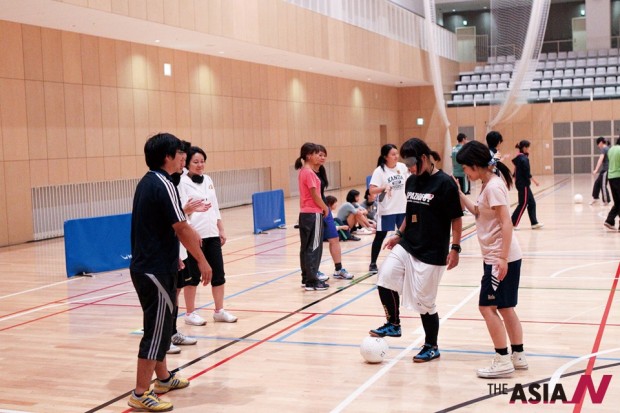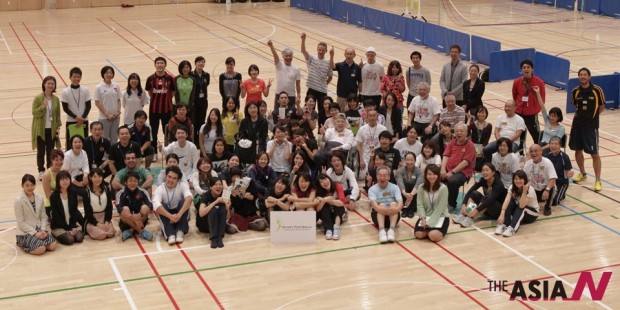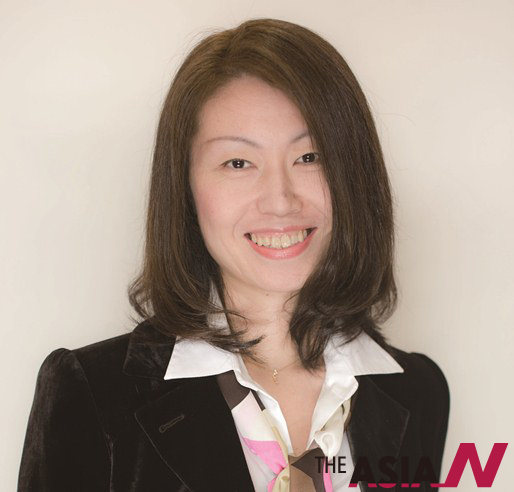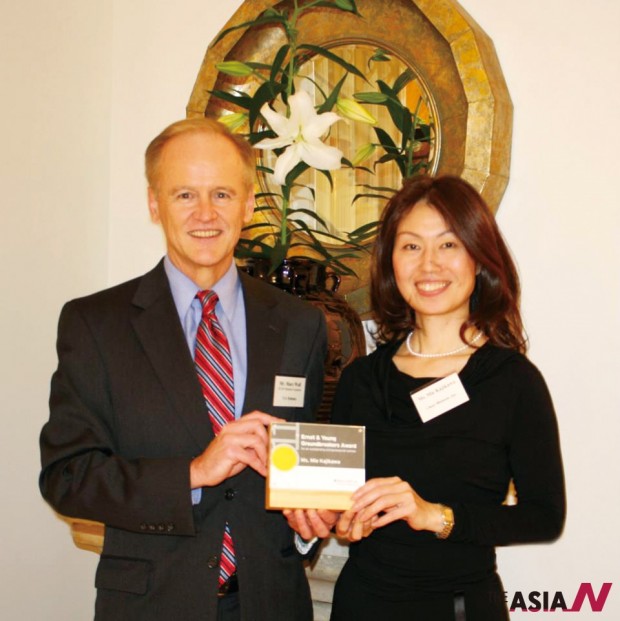Connecting people to change society through sport
Interview with Mie Kajikawa, Founder and President, Sport For Smile
From an interpreter at the 1998 Nagano Winter Olympics, later earning a Master’s degree in sports administration from Ohio University, completing an internship at the National Basketball Association’s (NBA) Detroit Pistons as the first-ever Japanese female intern, later working as a liaison officer for the Tokyo 2016 Olympic and Paralympic Bid, Mie Kajikawa, 42, embodies “global” and “sports.” But, these are only tools to help her realize her vision to promote social inclusion through sport, focusing on Japan. In 2010, Kajikawa founded the NPO platform, Sport For Smile, which connects people and organizations to use the power of sport for social change. A pioneer and an activist, she has also received the Ernst & Young Groundbreakers Award 2011, which was granted to one female entrepreneur based in Japan.
How did you become a sport-for-social-change activist?
I have always wanted to contribute to peace. My grandmother was not able to go to neither university nor junior high school because of the war. I wanted to work for world peace, but I did not know how. When I volunteered for the Nagano Olympics as an interpreter, I was impressed by the power of sports and realized I wanted to do something using sport.
I also have a background in sport. I had a very positive experience playing basketball for about 20 years from elementary school to college and gained so much from the friends, coaches and the skills I acquired.
But, the turning point for me was attending a Basketball without Borders international camp co-hosted by the NBA and FIBA.The camp was originally held inviting youth from former Yugoslavian countries and had them play together with other students from countries that killed their mother or father.
Even though the children were young and did not remember much, it still was very intense being only 10 years after the genocide in Yugoslavia. The camp I attended was the third time, so it was much more relaxed than the first camp. This camp was a step forward to create friendships between the former Yugoslav countries. When teenagers came together for these camps, they were a bit timid, but once they started to play basketball, they started to smile and this showed me how sports could act as a universal language that could overcome conflict and barriers. I also wanted to conduct such a project in which I could use the power of sport.

Participants playing blind soccer at the Sport for Smile Square Special in Tokyo on October 10, 2012 (Photo : Sport For Smile/ Yoshio Kato)
What brought you to founding Sport For Smile?
I felt Sport For Smile was a project in which I could achieve my career goal in the most effective way using my given assets. In the beginning, I talked to other international sport-for-change platforms about expanding to Japan, but they were not interested. So, I decided to start an initiative on my own with the guidance of my mentors. I was lucky to have created a global network that could help and encourage me to conduct Sport For Smile projects.
Please tell us about Sport For Smile’s main activities.
I founded Sport for Smile in July of 2010 and in September 2011, we started the Sport For Smile Lounge, a conference discussing how to use sport for social change, for the first time. I invited people I knew including a representative from The United Nations Office on Sport for Development and Peace (UNOSDP) to Skype in and speak at the conference. With 80 people attending, the event was so exciting as the first of its kind in Japan. We had some projects doing good through sports, but nothing specifically on sport for social change.
In May 2012, we held another event at the United Nations University in Shibuya and the head of UNOSDP came over this time to speak and this November 24, we will hold the Sport For Smile Lounge Special 2013 where more than 20 global and domestic organizations will speak about their activities.

Group photo at Sport For Smile Square in Tokyo, Japan, Oct, 10, 2012 (Photo : Sport For Smile/ Yoshio Kato)
Besides the Sport For Smile Lounge, we regularly organize the Sport For Smile Square, a sport experience provided for people to experience sport together with those with disabilities or who are socially marginalized. We usually play floor hockey, Fusen (balloon) volleyball and blind soccer. Last year in October, we registered Sport for Smile Square as an official side event of the International Monetary Fund (IMF) and World Bank Group’s General Assembly held in Tokyo, Japan and gathered around 100 people.
It has been rewarding to make people smile through sport and being able to connect people and different organizations to collaborate through our events.
Why did you name your platform Sport For Smile?
In Japan, people say sport gives hope and dreams, but in my opinion, I can only guarantee smiles. Japanese people are not very comfortable talking about social justice and heavy or sensitive topics. People expect beautiful words of hope and dreams. They may be much easier for cooperation purposes, but they do not make a big difference. I am aiming for social impact. I want to use sport for social immersion purposes and for people who are really in need. I believe we can empower the disadvantaged and they can eventually lead people on a fair stage of sport.
How do you feel about Japan winning the bid for the 2020 Summer Olympics
I am happy we won the bid, but I really wish people in Japan could recognize that we still have a long way to go. I want the Japanese people to know that we are still behind and have to change, and that we should make the most out of this opportunity.
We should be responsible as the host country of the 2020 Games.
Who is your role model?
Kayoko Hosokawa is one of my role models. Mrs. Hosokawa is the chairperson of Special Olympics Japan and the wife of Japan’s former prime minister. I really respect her because she started Special Olympics Japan from scratch and now we have branches in 47 prefectures in Japan due to her efforts of visiting every single local city and convincing people of its viability. Even though she was not an expert in the field, she felt that it was something that she really had to do.
Not only is Kajikawa very passionate about the power of sport, but also concerned about raising Japan to global standards. In 2012, she took a two-week public speaking course at Harvard Extension School. “I was shocked when I returned to Japan several years ago by Japanese corporate executives delivering their speeches and presentations so poorly,” she shared.
Having helped the Japanese Paralympic athlete Mami Sato make her first English speech years before the Tokyo 2020’s bid presentation, Kajikawa now teaches global communication to youth in Japan and recommends for them to go abroad to get help in achieving their career goals.
Her favorite quotes are “Tomorrow is another day,” and “If you live properly, your dreams will come true.”




























































